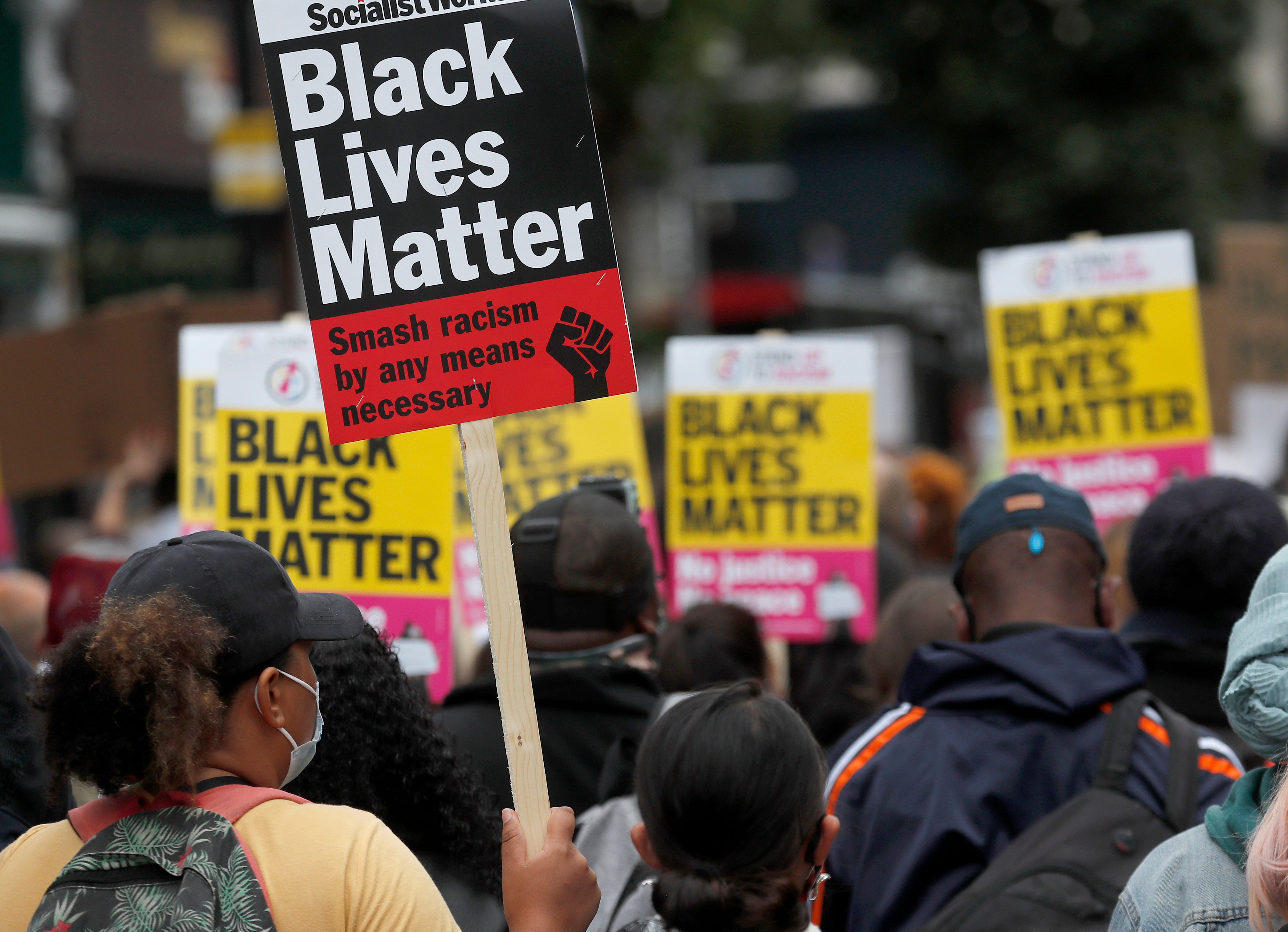Your support helps us to tell the story
From reproductive rights to climate change to Big Tech, The Independent is on the ground when the story is developing. Whether it's investigating the financials of Elon Musk's pro-Trump PAC or producing our latest documentary, 'The A Word', which shines a light on the American women fighting for reproductive rights, we know how important it is to parse out the facts from the messaging.
At such a critical moment in US history, we need reporters on the ground. Your donation allows us to keep sending journalists to speak to both sides of the story.
The Independent is trusted by Americans across the entire political spectrum. And unlike many other quality news outlets, we choose not to lock Americans out of our reporting and analysis with paywalls. We believe quality journalism should be available to everyone, paid for by those who can afford it.
Your support makes all the difference.A controversial report on racial disparities commissioned by the government used “inflammatory” language that could put the lives of minority ethnic communities “at further risk”, health experts have warned.
The Consortium of Black, Asian and minority ethnic Health Professional Networks said it is “dismayed” that the report by the Commission on Race and Ethnic Disparities (Cred) “downplayed the significant impact of racism” in Britain.
The report said racism is a “real force” but that Britain is no longer a country where the “system is deliberately rigged against ethnic minorities”.
Dr Tony Sewell, who chaired the commission, said it had found no evidence of “institutional racism”. The report criticised how the term has been used, saying it should not be a “catch-all” phrase for any microaggression.
It also criticised the “accusatory tone of much of the current rhetoric on race, and the pessimism about what has been and what more can be achieved”.
The report said thinking that seeks to explain all disadvantages faced by minority ethnic groups through white discrimination divert attention from other reasons, including “those embedded in the cultures and attitudes” of these communities.
Read more:
- ‘Institutional racism doesn’t exist,’ government’s race commission suggests
- Who are the authors behind government’s race report?
- Race campaigners ‘deeply, massively let down’ after government’s report
- It’s right to get rid of ‘Bame’ – but this report minimises racism in the process
- Benjamin Hannam: Met Police did not know officer was neo-Nazi until anti-fascists leaked data
In a joint statement, 37 Consortium members said: “This language is inflammatory and will put the lives of black, Asian and minority ethnic communities at further risk.”
Dr Salman Waqar, a co-ordinator at the Consortium, a GP and general secretary of the British Islamic Medical Association (BIMA), said that adopting the approach outlined in the report could lead to policy and interventions designed “to help people make better choices” instead of breaking down structural barriers.
Speaking to the PA news agency, he explained that taking “such an outlying, left-of-field approach” will lead to policies designed to address disparities that use “flawed methodology, flawed evidence and flawed conclusions”.
This will not fix the problem and could potentially “worsen the issue by putting in resources and attention into areas where it’s not needed”, Dr Waqar said, adding that it could also “inflame the situation” and therefore put communities at risk.
The Consortium said the legacy of slavery, the Windrush scandal, the Grenfell Tower fire and disproportionate deaths of minority ethnic frontline workers during the pandemic “all highlight the structural barriers” that exist in society.
“These cannot, and must not, be swept under the carpet by a partisan report that has drawn up spurious conclusions which fly against established facts, derided by global experts, and defies the lived experiences of many,” it said.
The commission’s report claimed that for some key health metrics, including life expectancy and overall mortality, ethnic minority groups had better outcomes than the white majority population.
It said that this evidence “clearly suggests” ethnicity is not the “major driver” of health inequalities in Britain, pointing instead to a “complex interplay” of socio-economic, behavioural, cultural and, in some cases genetic, risk factors which lead to disparities.
It said that if it were true that Black and south Asian groups were suffering from systemic racism throughout their lives, this would be reflected in overall mortality figures, but actually these groups have a lower mortality than white ethnic groups.
The Consortium said the report did not acknowledge evidence from a previous government report that showed that stressors associated with being racially discriminated against has an adverse effect on mental and physical health.
And while it recommended the setting up of an Office for Health Disparities, it did not make an reference to the NHS Race and Health Observatory, set up last year to tackle inequalities experienced by ethnic minorities.
A spokesperson for the commission said in a statement released by the Government Equalities Office: “The report fully acknowledges the particular need to do more to address racial disparities within healthcare, and amongst its recommendations is the creation of an Office for Health Disparities, which the Royal College of Physicians has welcomed.
“The Health Foundation has also said the Commission was right to identify concerns in different health outcomes between different ethnic groups.
“The report also highlights many instances of success among our ethnic minority groups, something which we should recognise and learn from.”

Join our commenting forum
Join thought-provoking conversations, follow other Independent readers and see their replies
Comments